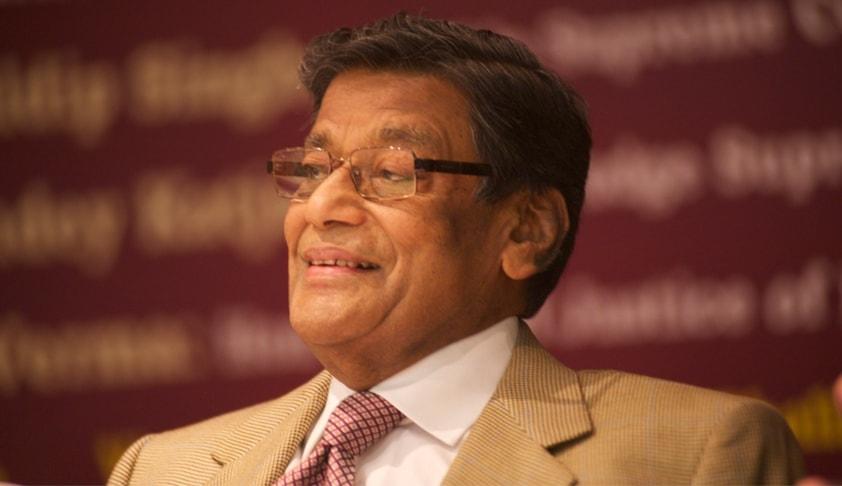The Law-making Power of the Judiciary is Not an Unfettered Power

Image Courtesy: Live Law
Within a week of filing the revision petition against the March 20 Judgement in the Supreme Court, the Attorney General (AG) K. K. Venugopal began his submissions on Wednesday. The AG’s written submissions challenged the March 20 Judgement on four grounds:
- Contradictory and confusing language used
- Law making power of the court
- Conflict with State of Madhya Pradesh and Anr. v. Ram Krishna Balothia and Anr.
- The sensitive nature of the case
The AG had raised the issue of the language used in the operative part of the Judgement. The third conclusion in the Judgement makes it mandatory to obtain the approval of the appointing authority regarding a complaint against a public servant, and from the SSP, when the accused is not a public servant. The fourth conclusion, however, provides that the DSP ‘may’ conduct the preliminary enquiry to determine whether the complaint is frivolous or not. This means that the fourth conclusion is discretionary, whereas the third is mandatory. The fifth conclusion then makes the fulfilment of the third and fourth directions mandatory. Hence, the confusion arises: under the third direction, should a preliminary enquiry be mandatorily carried out by the DSP or does he have the discretion to delegate it?
The AG also questioned the extent of the Supreme Court’s ‘law-making’ powers using the separation of powers doctrine. He questioned the reasoning, as the Judgement relied heavily on English decisions to establish the law-making power of the Court. His contention was that England does not have a written Constitution, but India does. The separation of powers is a part of the basic structure of the Constitution. He then referred to a lecture delivered by Justice M. N. Venkatachaliah, former Chief Justice of India, at the Constitution Day celebrations in 2016. Justice Venkatachaliah had stated three circumstances in which Judges make law. First, interpreting an ambiguity or an apparent contradiction in a statute. Second, gradually giving meaning to deliberately broadly worded terms in a statute by a succession of interpretative decisions. Third, expanding the content of common law in accordance with the need of the times.
The AG further submitted the decision in SCBA v. Union of India, a 1998 decision, which, according to him, puts to rest the question of Judges making a law. The Judgement had stated, “this power cannot be used to "supplant" substantive law applicable to the case or cause under consideration of the court. Article 142, even with the width of its amplitude, cannot be used to build a new edifice where none existed earlier, by ignoring express statutory provisions dealing with a subject and thereby to achieve something indirectly which cannot be achieved directly.”
In State of Madhya Pradesh and Anr. v. Ram Krishna Balothia and Anr. the three-Judge Bench of the Supreme Court upheld section 18 of the Scheduled Tribes and Scheduled Castes (Prevention of) Atrocities Act, 1989. The section puts a bar on anticipatory bail for offences committed under the Act. Therefore, if the Supreme Court wished to overturn this previous decision, which it would be otherwise bound by, they should have constituted a larger Bench. The March 20 Judgement was delivered by a two-Judge Bench.
The AG concluded his written submissions by alluding to the sensitive nature of the case. Without detailing the country-wide protests against the March 20 decision, the AG requested that the Court should keep this aspect of the Act in mind when deciding the review petition. The protests that erupted after the March 20 Judgement appeared to be inevitable, given the rising crimes against Dalits across the country. Against this backdrop, the March 20 Judgement appeared to be the last straw. The government, sensing the mood of the public, has filed the review petition, which is being perceived as an act of damage control.
Get the latest reports & analysis with people's perspective on Protests, movements & deep analytical videos, discussions of the current affairs in your Telegram app. Subscribe to NewsClick's Telegram channel & get Real-Time updates on stories, as they get published on our website.
























